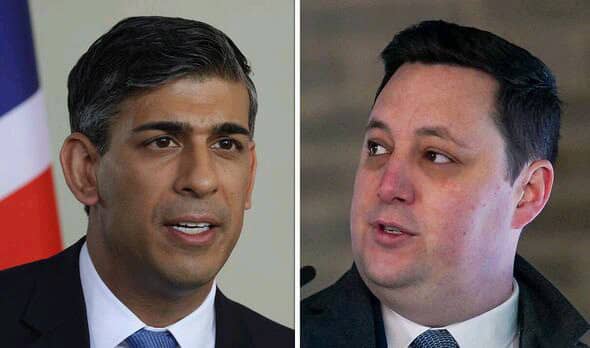As the United Kingdom faces a pivotal day of voting, much speculation has arisen about the potential future of Chancellor Rishi Sunak if the Conservative Party faces defeat in key electoral contests. Former Middlesbrough Mayor Andy Preston has raised concerns that a loss in the battle for Tees Valley Mayor could have significant consequences for Sunak’s tenure as Prime Minister, potentially ending his leadership if the Tories falter.
According to information available to EKWEANAEDO ONLINE, The Tees Valley mayoral election is emerging as a critical contest, reflecting broader political shifts both regionally and nationally. Once seen as a stronghold for the Conservatives, the Tees Valley area has become a closely watched battleground, showcasing changing political allegiances and trends. Incumbent Tees Valley Mayor Lord Ben Houchen, a Tory, has previously demonstrated electoral success in 2017 and 2021, highlighting the Conservative dominance in what was traditionally Labour territory. Nevertheless, this year’s race promises to be a closer fight, as recent polling indicates Houchen’s lead over his Labour challenger, Chris McEwan, is narrowing.
Andy Preston stresses that the outcome of the Tees Valley election could be a litmus test for the Conservative Party’s overall strength and Sunak’s political future. A defeat for Houchen, according to Preston, would signify a major political upheaval, potentially enabling Labour to reclaim influence in the historically Labour-leaning “red wall” regions. This could pose a severe blow to the Prime Minister, potentially triggering a leadership crisis within the Conservative Party.
Preston’s analysis is informed by both local and national perspectives. While Lord Houchen’s earlier victories coincided with the peak of Boris Johnson’s popularity and the Conservative success in the 2019 general election, the current political landscape is shifting. Changing sentiments and evolving priorities mean today’s Tees Valley election will serve as an important gauge of public opinion and could foreshadow the outcomes of a possible future leadership challenge.
Preston recognizes Houchen’s record of dynamic and assertive governance, marked by significant initiatives aimed at revitalizing the region’s economy. Although not without criticism, Houchen’s approach resonates with many local residents.
In contrast, Preston warns of potential stagnation and setbacks under a Labour administration, arguing that such a shift could impede progress and development.
The stakes extend beyond just the future of the Conservative Party; they also affect the economic health and trajectory of the Tees Valley region. As voters cast their ballots, the decision between continuity and change, proven leadership and new alternatives, will shape the region’s future for years to come.
The significance of today’s elections goes beyond Tees Valley, impacting the broader national political scene. Multiple mayoral races and council seats are at play, offering insight into changing political landscapes and voter priorities.
Chancellor Jeremy Hunt has acknowledged the potential for significant losses for the Tories, highlighting the party’s need to carefully navigate these changing dynamics. As the country awaits the results of the elections, Tees Valley remains in focus, with the outcomes set to influence the future of political incumbents and the direction of the nation’s leadership.
For Sunak and the Conservative Party, the results could determine the trajectory of British politics for years to come.




